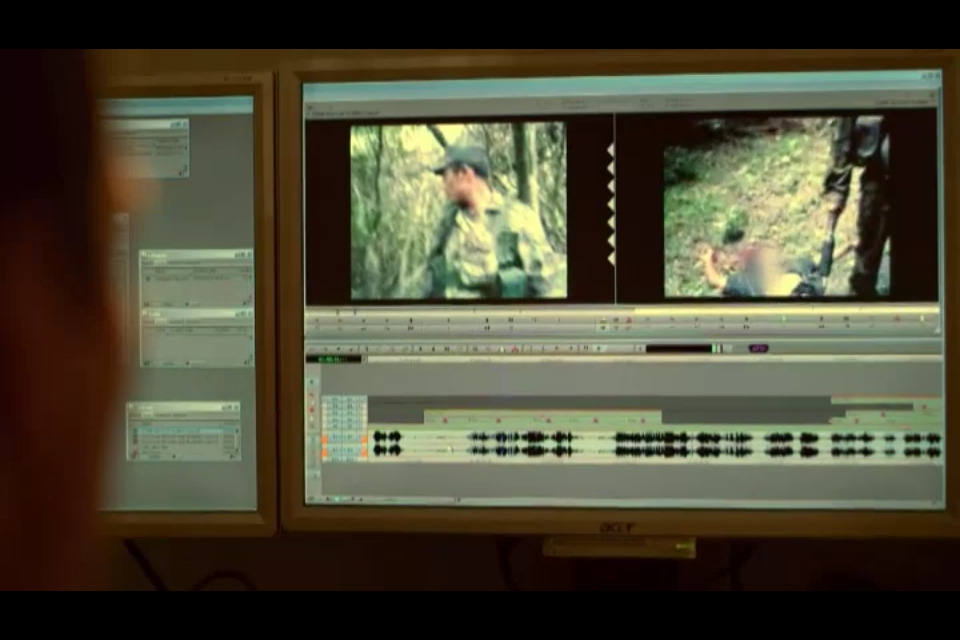 |
| Photograph Channel 4 |
Next week, the Global Summit to End Sexual Violence in Conflict is due to take place in London, co-hosted by the UK's Foreign Secretary, William Hague and the Special Envoy for the UN High Commissioner for Refugees, Angelina Jolie.
In the run up to the ESVC summit, we revisit the mounting evidence which documents the widespread, systematic and on-going use of sexual violence by Sri Lanka's military against Tamils, that occurs with absolute impunity.
See our full feature: 'Sexual Violence in Conflict: Sri Lanka'
As the armed conflict drew to an end in May 2009, Sri Lanka's soldiers committed acts of sexual violence against Tamil women and men, both civilians and LTTE cadre, at will.
One Sri Lankan soldier told Channel 4 in July 2011:
"They [Sri Lankan soldiers] shoot people at random, stab people, rape them, cut their tongues out, cut women's breasts off. I have witnessed all this with my own eyes. I have seen small children laying dead."
"If they wanted to rape a Tamil girl, they could just beat her and do it. If her parents tried to stop them, they could beat them or kill them. It was their empire."
"One day I saw a group of six soldiers raping a young Tamil girl. I saw this with my own eyes."
Much of the photographic and video evidence of sexual violence in the final stages of the armed conflict emerged in the form of 'trophy videos', filmed by Sri Lankan soldiers themselves whilst committing the crimes.
One of the latest videos to emerge depicts soldiers performing acts of sexual violence on the stripped, dead bodies of Tamil LTTE fighters.
Describing the footage, acclaimed documentary maker and director of 'Sri Lanka's Killing Fields', Callum Macrae said,
"Scattered in the clearing are the bodies of what appear to be Tamil Tiger rebels. The women, but not the men, have been stripped in a mannar suggesting sexual assault. Though many of these images are too distressing to be shown on television.
At a couple of points as soldiers laugh, acts of grotesque sexual violence are perpetrated on the bodies of one of the women."
Similarly, the rape and killing of LTTE news anchor, Isaiyapriya, has come to light through a series of photographs depicting her partially naked in the custody of military personnel, before being sexually violated and killed.
Despite the growing number of independently authenticated video footage and photographs depicting soldiers committing acts of sexual violence, the Sri Lankan government's flatly rejects all accusations.
Responding to video footage published by Channel 4 News, the Sri Lankan High Commission in the UK said in March this year:
"Your latest attempt to denigrate Sri Lanka is a continuation of your pernicious campaign that has already been exposed in the book Corrupted Journalism Channel 4 and Sri Lanka.
Your allegations are such unmitigated and unsubstantiated rubbish that you make even gutter journalism appear to be Pulitzer Prize-winning professionalism.
What makes your journalism doubly dubious and obnoxiously unbalanced is that you expect us to comment on footage which, in fairness, we have not even been given the opportunity of seeing or hearing.
It is a pity that your continuing propagandist vendetta against Sri Lanka only continues to undermine the process of reconciliation and healing that we have undertaken after a near three-decade long terrorist war.
It is certainly not going to help those in Sri Lanka you pretend you are helping but who only wish to live in peace without external meddling and posturing.
Your crude journalism exposes both Callum and your calumny".
